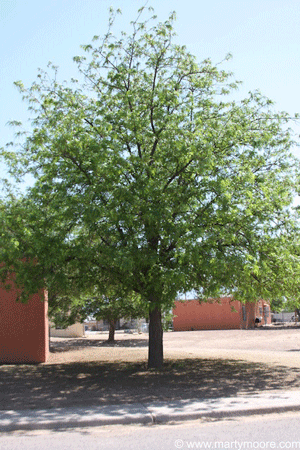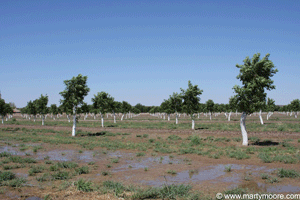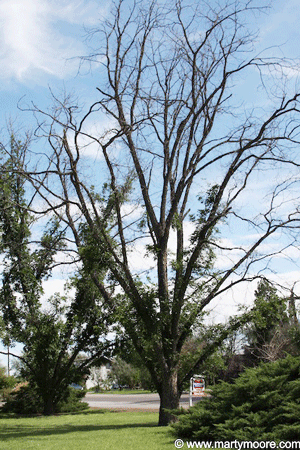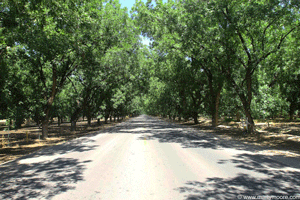Pecan trees are a welcome addition to the desert landscape, as they provide both shade and tasty nuts!
The most widely grown variety is the "Western Schley". It sheds its pollen before the pistils are receptive and should be pollinated by a late pollen shedding variety such as "Wichita".
Our favorite is the "Burkett" and it does not require a pollinator. The "Burkett" has large round soft-shelled pecans with a distintive flavor.
Pecan trees do very well in the desert Southwest, one of the largest pecan growers in the world is Stahman Farms and they are located in the Mesilla Valley, on the outskirts of Las Cruces, New Mexico.
Pecan trees require full sun and plenty of water, their tap-root may reach the water-table, but without sufficient surface water, the trees will not flourish.
Pecans are heavy feeders, so to maintain health and consistent nut production, fertilize pecan trees annually. Use a complete fertilizer, and apply in February. If the tree sets a heavy crop of nuts, you should make a second application around June.
Pecans also require a lot of zinc to remain healthy, small leaves and highly branched twigs at the shoot tips are signs that your tree needs more zinc.
Most of the soils in the desert Southwest have a pH above 7.0 and because of this, foliar applications of zinc tend to produce better, and of course faster results than granular products. Foliage should be sprayed at least three times per year.
Remember, only apply foliar sprays to well watered plants and only in the cool of the day, early morning is best.
Did you know that eating pecans can lower your bad cholesterol levels, and it takes 5 to 6 years for a pecan tree to start producing nuts, so purchasing a larger tree definitely has it's benefits.
Check out some Pecan tree variety info here.


1.gif)
1.gif)


